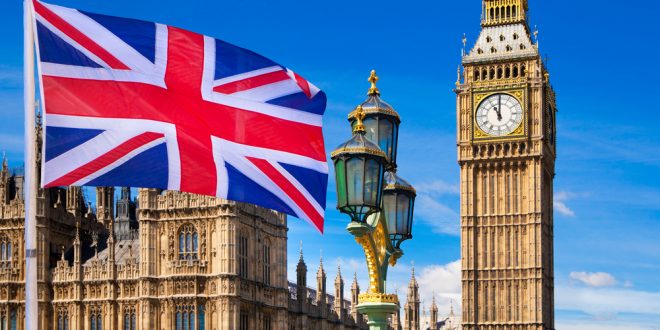After 28 months in development and overseen by the tenure of three Prime Ministers, three Secretaries of State and six junior Ministers, the Gambling Act review White Paper has finally been released this afternoon.
The White Paper sees the Conservative government fulfil a 2019 manifesto pledge made by PM Boris Johnson to overhaul the gambling sector by replacing its “analogue laws”
Policy Overview
The review has been undertaken to ensure ‘gambling happens safely’, in which consumers must be safeguarded as around “300,000 people are estimated to be experiencing problem gambling, with a further 1.8 million identified as gambling at elevated levels of risk.”
As such, the government maintains its original objectives to strengthen gambling’s regulatory and legislative frameworks to deliver the foundational principles to govern the gambling sector including protecting children and vulnerable people, ensuring fairness and openness, and that gambling remains a crime-free activity.
Officially launched on 20 December 2020, DCMS has reviewed over 16,000 submissions related to the Gambling Review, in which it outlined key evidence submitted by the Lords Select Committee on the Social and Economic Impact of the Gambling Industry, Public Health England’s (PHE) Gambling-related harms and the independent review of the Regulation of BetIndex Ltd.
The affordability elephant and delivering on data
Settling one of the most contentious issues of the review, affordability checks, DCMS has put forward a ‘targeted system of financial risk checks’ – alluded to by former Minister Paul Scully earlier this year – to ensure ‘proportionate’ detection of harm.
A monthly net loss threshold of £125 and yearly net loss of £500 has been proposed as the ideal benchmark for initial checks, with £1,000 in losses within one day or £2,000 within 90 days put forward as a higher threshold.
The government argues that these limits will allow the ‘overwhelming majority’ of punters who gamble safely to continue to do so without interference in their financial affairs, whilst safeguarding those at risk.
Honing in on the protection of younger customers, however, policymakers have proposed that triggers for enhanced checks be lower for those between 18 and 24, meaning bettors in this demographic are more likely to be subjected to financial risk checks.
There is the potential for deposit limits to become a mandatory requirement for customers when setting up an account, i.e. becoming a feature that they must opt-out of as opposed to opting in.
Further proposals for the online sector see recommendations on data sharing come to fruition. DCMS recommends that operators be required to share data on high-risk customers.
The Paper read: “Individual operators can take steps to prevent harm on their own platform, but people suffering gambling harms often hold multiple accounts. Where there are serious concerns, operators must work together.”
The Department also pledges that the Commission will ‘work with others’ to examine what more can be done to reduce risks around account verification and ensuring payment details match an account.
In a section focusing on ‘empowered customers’, however, DCMS added that operators must make punters ‘aware of the circumstances’ in which data-based decisions to restrict account activity are taken and provided with explanations as to why such actions were taken.
A summary of the DCMS’ goals on customer risks read: “Our vision for remote gambling is that the risks are mitigated and that we maximise the use of technology and data to protect people in a targeted way at all stages of the customer journey.”
No surprises on age restrictions
Of significance to the igaming space – although not coming as much of a surprise after numerous ‘leaks’ in the national media – a maximum stake limit for online slots of between £2 and £15 has been put forward.
Similar to financial risk checks, 18 and 24-year-olds will be subject to tighter slot stake restrictions, with options proposed of a £2-or-£4 limit per stake, or alternatively, ‘an approach based on individual risk’.
However, although the government has had over two years to review its proposals and has initiated several consultations on reforms, the slot stake suggestions will be subject to another consultation.
One more proposed consultation would see the UK Gambling Commission (UKGC) examine possible updates to design rules for ‘online products’, as policymakers target games which are ‘safer by design will help prevent harm at source and reduce the reliance on reactive harm detection systems’.
Again placing an emphasis on the protection of young consumers, the government will set the age limit on Category D slots – such as those found in amusement arcades, common in UK seaside resorts – at 18 under the Paper’s proposals. Currently, the limit on cash prize category D machines is voluntary.
Meanwhile, the age limit on the football pools and all lottery products will also be solidified at 18 – although the former was judged to have a ‘low risk of harm’ due to an average stake of £3 and an average player age of over 55.
This means that all gambling products across the UK will have a single age limit should the paper’s proposals be fully adopted.
Conduct First on Advertising and Sponsorship
In terms of betting’s relationship with sports, DCMS outlined that the evidence it has gathered indicates that gambling sponsorships do have a level of impact on betting behaviour.
It asserted that bodies need to ensure a ‘responsible approach’ is taken to gambling sponsorship through the adoption of a new Code of Conduct – which will soon be common to all sports.
For individual sports, it advises that sports governing bodies are best placed to drive up standards in gambling sponsorship, recognising their specific context and responsibility to their fans.
“We welcome the work that is underway through sports governing bodies to develop a gambling sponsorship Code of Conduct, and will continue to support its development and implementation across the whole sporting sector,” the Paper states.
“Compliance with a Code of Conduct could be guaranteed from within sports themselves through enforcement by governing bodies.”
The Code, however, must be robust enough to provide ‘meaningful improvements’ in the social responsibility of gambling sponsorships whilst also giving the flexibility to accommodate the ‘material differences’ between sports.
The review has given some possible principles which may be seen in the upcoming Sponsorship Code of Conduct, such as a need for a commitment into reinvesting funds from sponsorship into development of grassroots activities.
Additionally, the proposed Code could see the visibility of gambling advertising restricted from dedicated family areas in stadiums used for professional-level competition – building on the recent decision by the Premier League to withdraw front-of-shirt sponsorships.
Operators may also have to cover costs of education for sportspeople and staff on gambling-related harm from an independent provider, and a proportion of sponsorship inventory should be used for dedicated safer gambling messaging.
The Paper has shown its support for the industry’s expansion of its commitment to safer gambling messaging to constitute 20% of all advertising across both online and broadcast channels.
Meanwhile, the DCMS, Commission and Department of Health and Social Care (DHSC), also look to replace industry-owned safer gambling messaging, drawing on public health and social marketing expertise to develop a robust approach to informational messaging.
It wants to develop a new, evidence-based model for independently developed safer gambling messages.
Furthermore, DCMS maintained that it welcomes the recent steps made by the Premier League in voluntarily opting to ban gambling companies on the front of football shirts.
It reiterated that these clubs will still be able to maintain other forms of gambling sponsorship, such as in stadiums, providing it adheres to existing rules on social responsibility and provisions in the forthcoming Code of Conduct.
In terms of esports, the Paper has assured that it will engage with video games stakeholders such as industry bodies, tournament organisers and publishers of popular esports games to develop and implement ground rules.
This may include potentially limiting gambling sponsorship in competitions that are accessible to under-18s.
“It is important that as part of supporting esports, we establish a socially responsible sponsorship culture as the sector continues to grow,” DCMS concluded.
UKGC Reorganisation
Upcoming reforms will grant new powers and resources to the Gambling Commission (UKGC) to ensure that the regulator can deliver on its statutory remit and future challenges.
The government plans to review the Gambling Commission’s fees in 2024 to ensure it has the resources to improve how it delivers its core responsibilities governing UK Gambling.
As such it is required for the Commission to start building the capacity to require and analyse more data from online operators to identify non-compliance with licence conditions.
The Commission will become a more ‘proactive regulator’, in which it will be granted increased powers to support its enforcement activity, such as to pursue court orders which require internet service and payment providers to take down or block access to black market gambling sites.
RET Levy – Under Consultation
One of the biggest and most highly debated changes proposed by the paper regarding the Commission’s remit is the introduction of a levy to fund Research, Education and Treatment (RET).
Formal plans will be launched to introduce a statutory levy on gambling operators, with funds collected and distributed by the UKGC under the guidance of Treasury and DCMS ministers.
The consultation is required to determine the levy’s design, including the total amount to be raised and its fair and proportionate construction. The consultation will consider the varying harm associated with different gambling sectors and their distinct fixed costs.
Consumer Redress to Come
Lastly, DCMS has proposed the creation of a new body which will likely be warmly welcomed by various industry stakeholders, including reformists, bookmakers and the Betting and Gaming Council (BGC) – a dedicated customer ombudsman.
Gambling customer disputes will be overseen by an independent ombudsman, assigned to adjudicate consumer complaints when operators fail to resolve them.
The initiative is undertaken as the Review highlighted “approximately 2,000 customer complaints per year submitted to Alternative Dispute Resolution (ADR) providers and the Gambling Commission” related to social responsibility breaches, gambling harm and safer gambling.
Operators are expected to offer appropriate redress, and if the ombudsman doesn’t receive enough cooperation or deliver expected protections, legislation will be enacted to solidify its position.
DCMS noted that it will cooperate with the industry and stakeholders in defining the remits of the ombudsman to be fully independent and credible with customers.
“We expect all operators to take steps to offer appropriate redress to customers where needed and if the ombudsman does not attract sufficient cooperation or deliver the protections as we expect, we will legislate to put its position beyond doubt.”
The financial cost to the online industry
The government estimates the key proposals that it is actually able to quantify, will see a potential drop of between 3% and 8% in commercial Gross Gambling Yield, across the gambling industry.
However the figure for online alone is estimated to be 8% to 14% as the land-based sector is anticipated to see GGY increase between 2% to 5% because of the deregulatory measures for physical gambling in the White Paper.
It added: “The estimated range depends on factors such as compliance with and findings from financial risk checks, as well as behavioural responses to various reforms where we currently have limited data available.”
UK Gambling to remain a booming sector
Signing off the White Paper, DCMS Secretary of State Lucy Frazer underlined the recommendations as the “balance between consumer freedoms and choice on the one hand, and protection from harm on the other.”
Irrespective of changes, DCMS cites confidence that the UK gambling sector can maintain its global status.
“Great Britain has been seen as a world leader in the oversight of gambling, with our comparatively low problem gambling rate but internationally successful gambling sector.”
“I hope this new package and the policies which we will work with the Gambling Commission and others to implement will continue to be seen as world-leading.”









